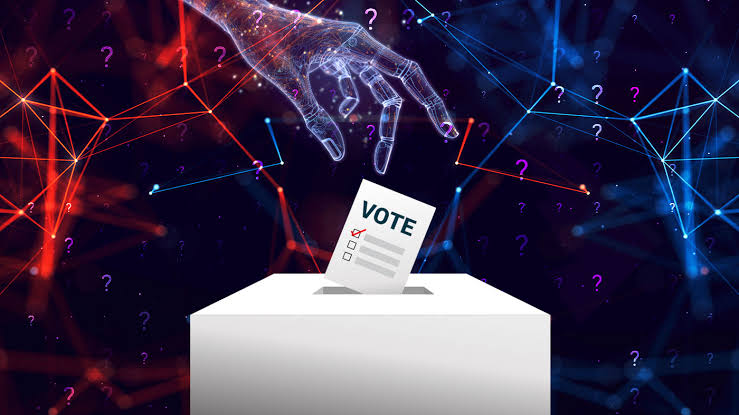By Oluwaseye Ogunsanya
“Experts fear 2024 could be the year a viral undetectable deepfake has a catastrophic impact on an election” – Financial Times
The above quoted statement was the preamble of an article published on Financial Times with the title ‘The rising threat to democracy of AI-powered disinformation’
The article discusses the growing threat of AI-generated disinformation, particularly deepfakes, in the context of elections worldwide. It highlights the use of sophisticated technology to create persuasive fake audio and video recordings which have the capacity to influence public opinion and election outcomes. Additionally, it also emphasizes the challenges faced by social media platforms in detecting and preventing the spread of such disinformation, especially in the lead-up to elections.
Some of the noteworthy concerns addressed in the article are the potential impact of AI-powered disinformation on democracy, trust in institutions, and the difficulty in distinguishing between genuine and manipulated content are key
As disturbing as it may seem to be, the article offers us a silver lining as it gives us an insight into the danger that lies ahead and the opportunity to be prepared to tackle them as we look forward to the national elections which are scheduled to hold in at least 64 countries, as well as the European Union.
According to AP, 2024 looks set to test even the most robust democracies and to strengthen the hands of leaders with authoritarian leanings while Aljazeera reports that the threats to democracy are real, no thanks to ethnic violence as well as steps aimed at weakening judicial and other checks on the power of the executive. These elections would no doubt have implications for human rights, economies, international relations and prospects for peace in a volatile world.
However the incursion of AI-powered disinformation into our electoral system is of greater concern although this menace has been a factor in elections for many years. But the recent and rapid advancement in AI technology makes it cheaper and easier than ever to manipulate the media and further destroy our already fragile democracy.
To be clear, efforts are being made by big tech companies and social media platforms to ensure that the menace is nipped in the bud but the challenge is just that new powerful and sophisticated AI-powered tools are emerging on a daily basis, rendering their efforts to be in futility.
In addition to this, there’s been a noticeable shift from election misinformation to election disinformation. This gives the impression that there are individuals who are deliberately peddling election related falsehood for various motives such as “to sway opinion or discredit candidates, to undermine trust in democracy as part of broader, more strategic geopolitical objectives or to generate engagement and profit, through advertising clicks for example.”
Sadly if this situation persists for long, it will eventually lead to doubt and mistrust among voters or social media users as they won’t know what to believe again because of the influx of synthetic media online.
Way forward
To tackle this time-bomb like situation, there should first be a political will on the part of governments across the world. This will then be followed by a high-level multi stakeholders collaboration involving governments, social media platforms, civil societies, tech organisations, and other stakeholders.
This confab will produce far reaching decisions, regulations and policies that will guide the development and use of Artificial Intelligence tools in a way that will enable better democratic participation and civil society activity.
It is also worthy of note to mention that FactCheckAfrica is at the forefront of this advocacy and we’ve since rolled out an AI-powered tool known as My AI Factcheck which was designed to help Nigerians tackle fake news.
My AI Factcheck harnesses a synergy of artificial intelligence and reputable news sources which combines Google’s fact-checking API with the GPT-4 model.
To this end, we call for a more robust partnership with interested parties in the private and public sector in order to further produce tools to help in curbing misinformation in our society.






Hi, this is a comment.
To get started with moderating, editing, and deleting comments, please visit the Comments screen in the dashboard.